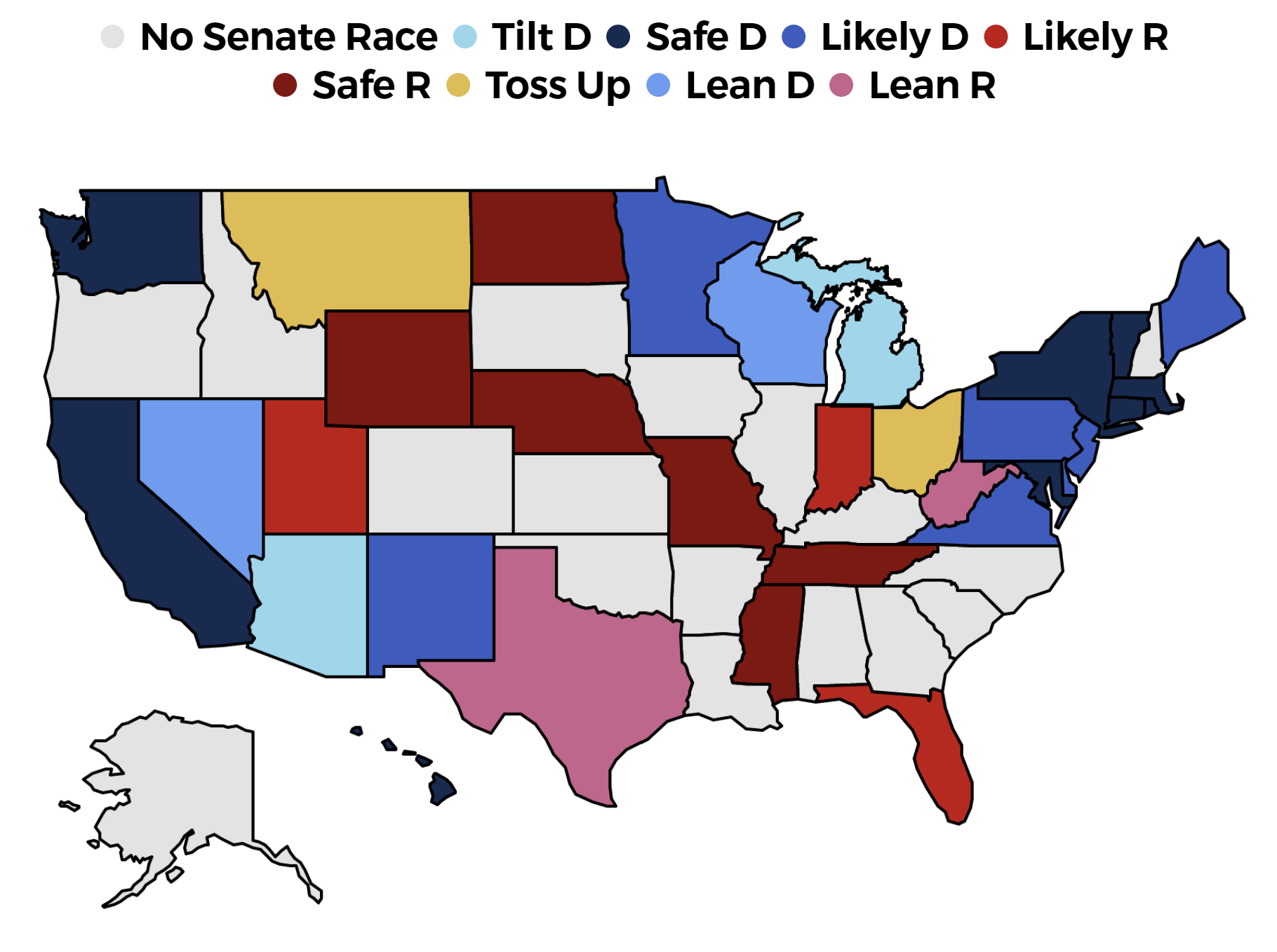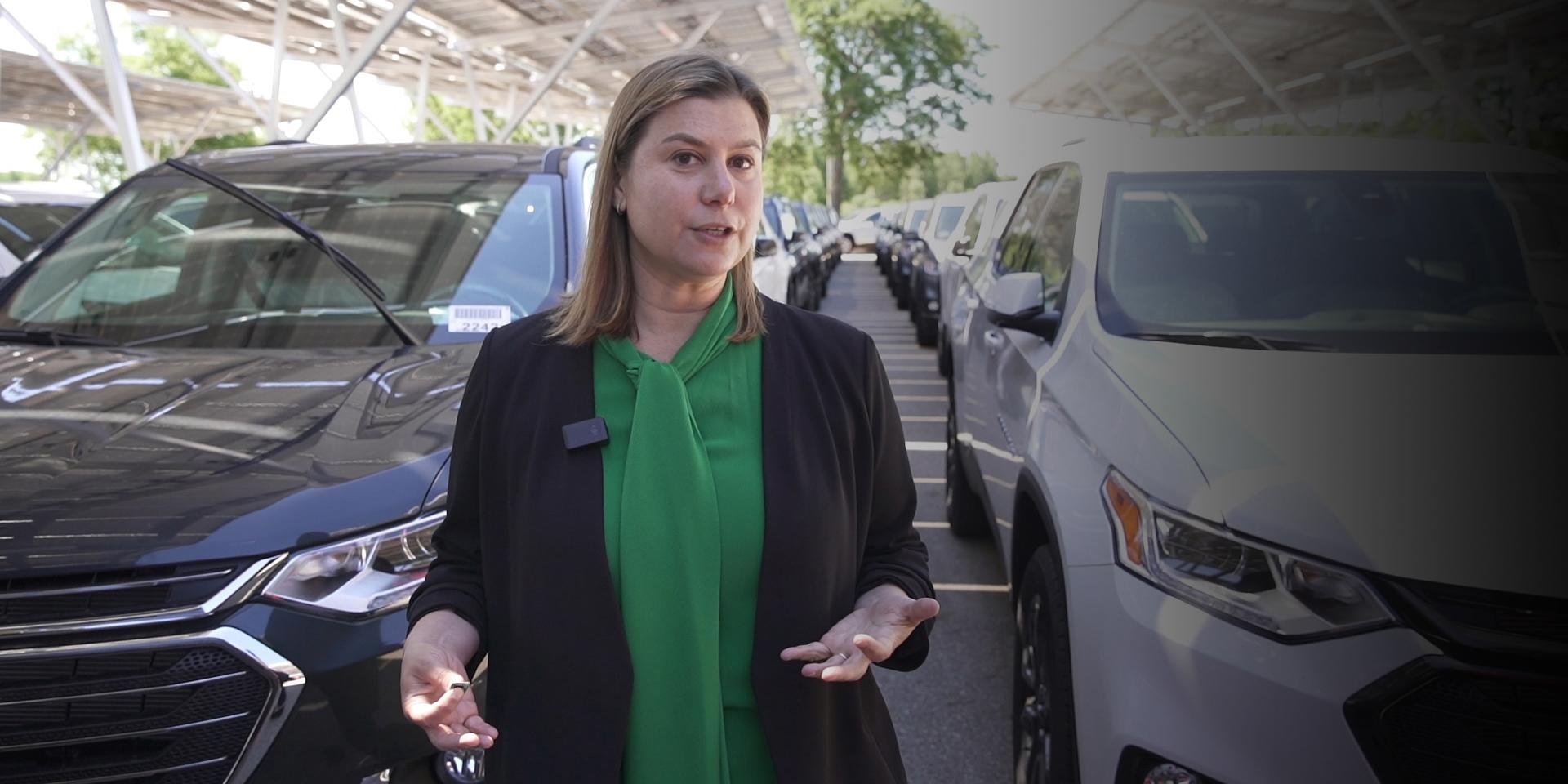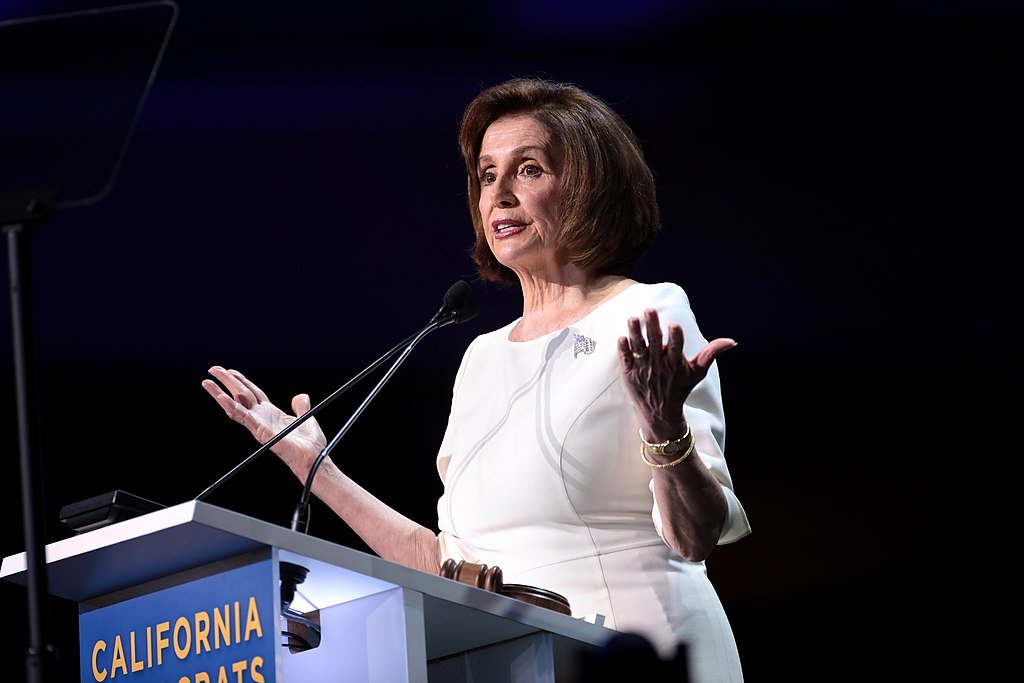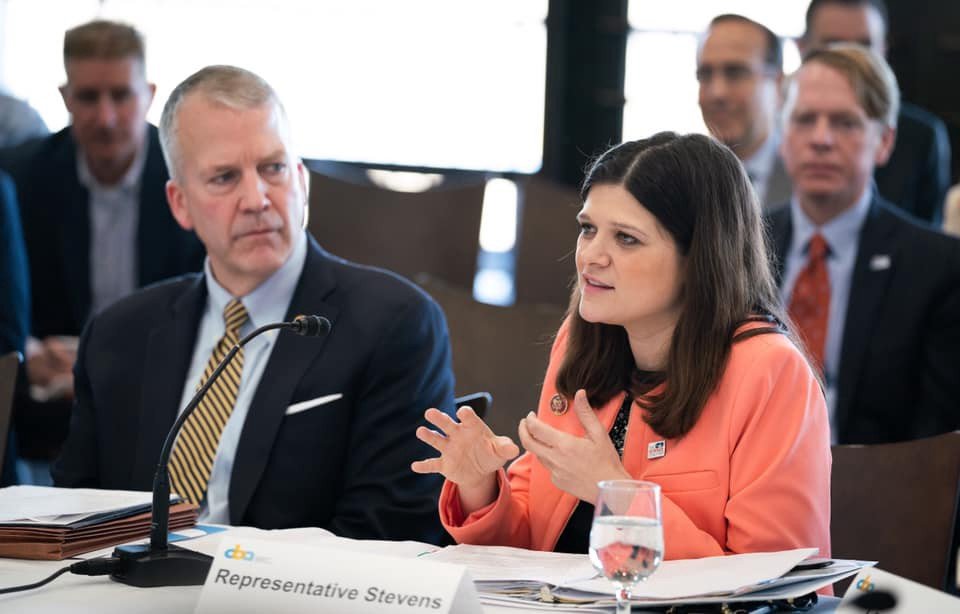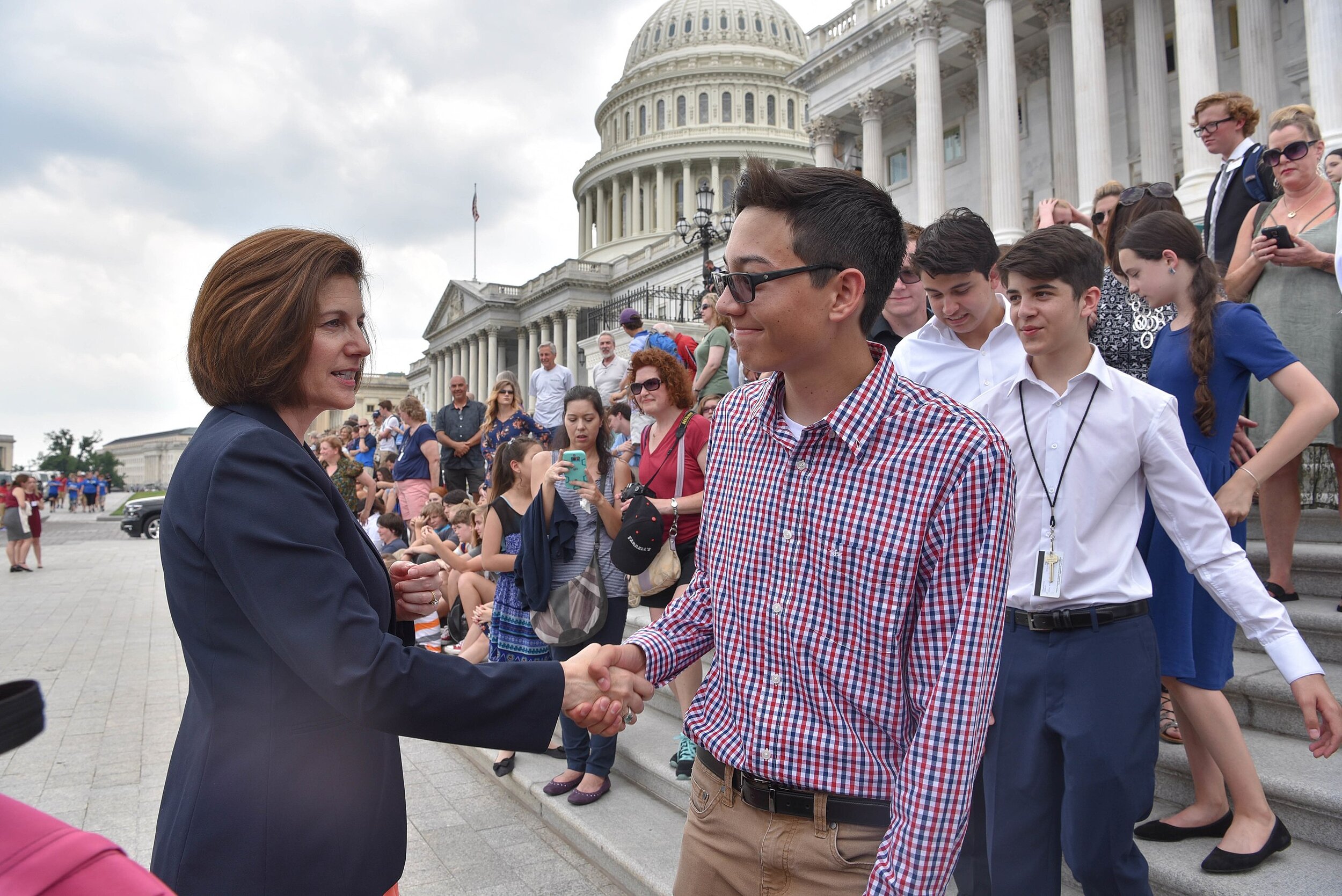Can Democrats Still Win a Senate Majority Even if they Lose the House?
Photo credit: Office of Senator Maggie Hassan
By: Logan Phillips, Editor in Chief
Date: January 3rd
Over the past nine weeks since their underwhelming performance in Virginia and New Jersey, Democrats have been written off by many as if they were the walking dead, heading aimlessly towards near-certain defeat in both Chambers of Congress this November. While there is certainly some truth to the low expectations for Democrats’ chances as it relates to the House of Representatives, I would argue that the emerging conventional wisdom about Democrats’ bleak chances in the Senate is misguided.
Democrats could lose the House, and even lose the popular vote in Congressional elections, while still retaining an excellent shot at keeping their Senate majority. This would hardly be unprecedented. In 5 of the last 13 elections, the party that lost the popular vote in the House managed to gain at least one seat in the Senate. That’s a tantalizing proposition for Democrats, especially after Senator Joe Manchin’s recent decision to oppose the Build Back Better Agenda.
This is not to discount the formidable threat that Republicans pose to the Democratic Party’s majority. They only need to flip one Senate seat to win, and historically, the party out of power performs very well in the midterms. The GOP also just took the lead in the national generic ballot and made serious gains in Virginia and New Jersey compared to the 2020 election.
Nonetheless, a GOP victory is far from assured, and Democrats stand a better chance than most coverage has acknowledged of weathering a tough cycle with their majority intact. Barring a red tidal wave, only four of the 14 Democratic Senate seats up in 2022 are at serious risk: Arizona, Georgia, New Hampshire, and Nevada. All four feature strong incumbents that performed well in their last election. Against a generic Republican, our Senate Forecast project that they would all have at least a 50% chance if the GOP won the national popular vote by less than 3.4%.
In most midterms, the party out of power excels at recruiting their best candidates to challenge the opposing party, and they retain most of their incumbents in competitive races. This time around, however, it’s the Democrats that have successfully retained every incumbent they needed to run again, and it’s the Democrats that convinced their rising stars to run as challengers in the states that they have their best chance at flipping.
Republicans chances of winning New Hampshire dropped by almost 15% the day Chris Sununu decided not to run. If he was the nominee, Republicans would have been favored to flip the seat in our Senate forecast.
The GOP, in contrast, has suffered from a string of bad breaks. Incumbents from three of the five most competitive states that are up for re-election in 2022 have announced their retirement, and a fourth, in Wisconsin, is considering calling it quits as well. As a direct result, Democrats have at least a 25% chance of winning each one of those states. They are particularly well-positioned in Pennsylvania, where they have a 54% chance of victory. That gives Democrats some serious insurance policy and preserves the chance of victory nationwide even if they lose one or two incumbents.
There are two bright spots for the GOP. In Arizona and Nevada, the frontrunners for the nomination are attorney generals that have a proven record of winning statewide. Both are performing well in head-to-head polling and would give the GOP a real shot at victory. Elsewhere, they have not enjoyed the same opportunities as Democrats in recruiting challengers to run.
New Hampshire has been a particularly dramatic and disappointing showcase of their struggles. Their dream recruit was Chris Sununu, currently one of the most popular governors in the country. In the very same year that Democratic Senator Jeanne Shaheen won re-election by over 15%, and that Joe Biden won the state with a comfortable 7.4% majority, Sununu wiped out his opponent with a devastating landslide margin of victory of over 30%. To the chagrin of the national Republican party, Sununu declined their advances, instead deciding to run for another two-year term as governor. So far, the GOP hasn’t been able to recruit a strong candidate to replace him.
They face the nightmare possibility of having General Don Bolduc as their nominee. He’s embraced several extreme conspiracies that are likely to repel some of the very swing voters the GOP badly needs to power past Senator Maggie Hassan. Bolduc has already made some costly mistakes that could hurt him in a general election, including bragging about “chasing communist sympathizer” Chris Sununu from the race. One can imagine that Senator Maggie Hassan would be delighted to use that quote against Bolduc in a general election to undercut his credibility when he inevitably accuses her of being a socialist.
The fallout from Sununu’s decision not to run was significant in our Senate Forecast. It projected that Sununu would have a 60% chance of beating Maggie Hassan in a general election. Bolduc, in contrast, would have just a 25% chance.
Explore the latest polling and projections for
Pennsylvania, updated daily.
In Pennsylvania, over eight different candidates are running for the GOP nomination, and none of them have ever won a single election before. While there have been outstanding first-time candidates, the GOP would be taking a big risk to nominate one in a state as competitive as Pennsylvania. There is ample evidence from past election cycles that shows candidates without any history of winning perform worse on average than those that have won before.
Perhaps the GOP is most ripe to underperform in Georgia. I believe that Herschel Walker’s weaknesses have been greatly understated. On paper, he’s a star recruit: a charismatic football star that won the University of Georgia’s only championship since 1940. However, he has a closet bursting with skeletons and past controversies that could wreck his candidacy, and that’s before the opposition researchers have even had a chance to pour through his history. The most alarming are allegations of violence against his former wife. She and her family testified that Walker repeatedly threatened to kill her during and after their marriage, even pointing a gun at her head and saying, “I’m going to blow your f’ing brains out”. A judge found her claims compelling enough to issue a protective order against Walker. Right now, he’s only a few points behind Warnock in our polling average, but it wouldn’t be surprising if Walker falls further behind once voters learn about the less savory parts of his past.
To maximize their odds of victory, the GOP should be running their very best in Arizona, Georgia, New Hampshire, and Nevada. Their failure to recruit strong candidates could cost them dearly in two of those four states. There’s also a possibility that they could nominate a weak candidate in Pennsylvania, giving Democrats a strategic advantage in a key state. These vulnerabilities might not prevent the Republican party from securing a Senate majority. However, they do greatly increase the odds that Democrats hold onto the Senate for the final two years of President Biden’s first term.



